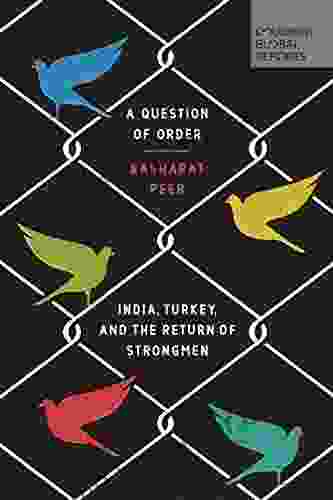India, Turkey, and the Return of Strongmen: A Comprehensive Analysis of Two Nations Navigating Political Polarization

In an era characterized by increasing political polarization and a global resurgence of strongman leaders, two nations—India and Turkey—have emerged as prominent case studies. Both countries have witnessed the rise of charismatic leaders who have amassed significant power and influence, reshaping their respective political landscapes. This article delves into the multifaceted factors driving the return of strongmen in India and Turkey, examining the similarities and differences in their trajectories and exploring the implications for the future of democracy in these two pivotal nations.
India: The Rise of Narendra Modi
In India, the rise of Narendra Modi and the Bharatiya Janata Party (BJP) to power in 2014 marked a significant shift in the country's political trajectory. Modi, a charismatic and polarizing figure, has consolidated his power through a combination of populist rhetoric, majoritarian appeals, and a robust social media presence. His policies have emphasized economic growth, national security, and a conservative social agenda, resonating with a significant segment of the electorate.
4.6 out of 5
| Language | : | English |
| File size | : | 1871 KB |
| Text-to-Speech | : | Enabled |
| Screen Reader | : | Supported |
| Enhanced typesetting | : | Enabled |
| Word Wise | : | Enabled |
| Print length | : | 172 pages |
Modi's strongman persona stems from his decisive leadership style, his projection of a tough stance on issues such as terrorism and corruption, and his portrayal as a protector of Hindu interests. However, his tenure has also been marked by increased authoritarian tendencies, suppression of dissent, and the erosion of democratic institutions.
Turkey: The Ascendance of Recep Tayyip Erdoğan
Similar to India, Turkey has experienced the rise of a strongman leader in the form of Recep Tayyip Erdoğan. First elected Prime Minister in 2003, Erdoğan has gradually consolidated his power, eventually securing the presidency in 2014. His presidency has been characterized by a populist style, a crackdown on dissent, and a shift towards authoritarianism.
Erdoğan's strongman image is rooted in his charismatic personality, his ability to connect with the masses, and his portrayal as a defender of Turkish nationalism and Islamic values. His policies have focused on economic growth, political stability, and a strong military, tapping into a widespread desire for national resurgence. Under his leadership, Turkey has also expanded its regional influence, particularly in the Middle East.
Similarities and Differences in Strongman Rule
While both Modi and Erdoğan share certain characteristics of strongman leadership, there are notable differences in their respective approaches. Modi has emphasized economic development and Hindu nationalist rhetoric, while Erdoğan has focused on political stability and Islamic values.
In terms of tactics, Modi has relied heavily on social media and mass rallies to cultivate a direct connection with the electorate, while Erdoğan has employed a more centralized and authoritarian approach. Additionally, Modi's rule has been marked by increased suppression of dissent and media freedom, whereas Erdoğan's authoritarianism has been more openly acknowledged and institutionalized.
Implications for Democracy
The rise of strongmen in India and Turkey raises concerns about the erosion of democratic institutions and the potential for authoritarian regimes. In both countries, the media, judiciary, and civil society organizations have faced increasing pressure and intimidation. The rule of law and the protection of human rights have been compromised, creating a climate of fear and self-censorship.
The long-term impact of strongman rule on democracy in India and Turkey remains uncertain. However, it is clear that both countries are facing a critical juncture in their political evolution. The ability of their respective societies to balance the desire for stability and prosperity with the protection of fundamental rights and freedoms will determine the direction they take in the years to come.
The rise of strongmen in India and Turkey is a complex phenomenon with multifaceted causes and implications. Both nations have witnessed the consolidation of power by charismatic leaders who have employed populist rhetoric, exploited societal divisions, and undermined democratic institutions. While Modi and Erdoğan share certain characteristics of strongman rule, their approaches and the specific contexts of their respective countries have resulted in distinct manifestations of authoritarianism.
The implications for democracy in India and Turkey are profound and demand ongoing vigilance from citizens, civil society organizations, and the international community. The ability of these nations to navigate the challenges of political polarization, maintain the rule of law, and uphold human rights will shape their future trajectory and serve as a barometer for democracy in the 21st century.
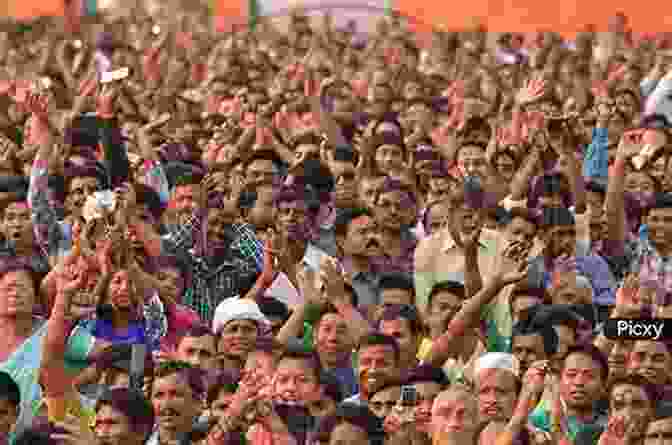
4.6 out of 5
| Language | : | English |
| File size | : | 1871 KB |
| Text-to-Speech | : | Enabled |
| Screen Reader | : | Supported |
| Enhanced typesetting | : | Enabled |
| Word Wise | : | Enabled |
| Print length | : | 172 pages |
Do you want to contribute by writing guest posts on this blog?
Please contact us and send us a resume of previous articles that you have written.
 Book
Book Novel
Novel Page
Page Chapter
Chapter Text
Text Story
Story Genre
Genre Reader
Reader Library
Library Paperback
Paperback E-book
E-book Magazine
Magazine Newspaper
Newspaper Paragraph
Paragraph Sentence
Sentence Bookmark
Bookmark Shelf
Shelf Glossary
Glossary Bibliography
Bibliography Foreword
Foreword Preface
Preface Synopsis
Synopsis Annotation
Annotation Footnote
Footnote Manuscript
Manuscript Scroll
Scroll Codex
Codex Tome
Tome Bestseller
Bestseller Classics
Classics Library card
Library card Narrative
Narrative Biography
Biography Autobiography
Autobiography Memoir
Memoir Reference
Reference Encyclopedia
Encyclopedia Bobby Eaton
Bobby Eaton Rosalyn R Lapier
Rosalyn R Lapier Marc Ribot
Marc Ribot Barrie Charles
Barrie Charles Barry O Reilly
Barry O Reilly Barry Neil Kaufman
Barry Neil Kaufman Beth Pickens
Beth Pickens Basharat Peer
Basharat Peer Barry Strauss
Barry Strauss Bert Haskell
Bert Haskell Barbara Weisberg
Barbara Weisberg Bertolt Brecht
Bertolt Brecht Bill Hayes
Bill Hayes Francesco Bartolini
Francesco Bartolini Beatrix Potter
Beatrix Potter Ben Yagoda
Ben Yagoda Robert Torres
Robert Torres Kara W Swanson
Kara W Swanson Roger W Andersen
Roger W Andersen Rosemary A Joyce
Rosemary A Joyce
Light bulbAdvertise smarter! Our strategic ad space ensures maximum exposure. Reserve your spot today!
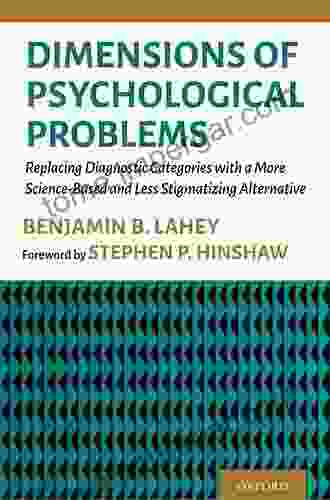
 Sean TurnerDimensions of Psychological Problems: A Comprehensive Guide to Diagnosis and...
Sean TurnerDimensions of Psychological Problems: A Comprehensive Guide to Diagnosis and... Stephen FosterFollow ·16.5k
Stephen FosterFollow ·16.5k Juan ButlerFollow ·3.3k
Juan ButlerFollow ·3.3k Aubrey BlairFollow ·13.3k
Aubrey BlairFollow ·13.3k Fletcher MitchellFollow ·14.5k
Fletcher MitchellFollow ·14.5k Davion PowellFollow ·15.1k
Davion PowellFollow ·15.1k Adrien BlairFollow ·6.5k
Adrien BlairFollow ·6.5k Derek CookFollow ·15.9k
Derek CookFollow ·15.9k Carlos FuentesFollow ·11.9k
Carlos FuentesFollow ·11.9k
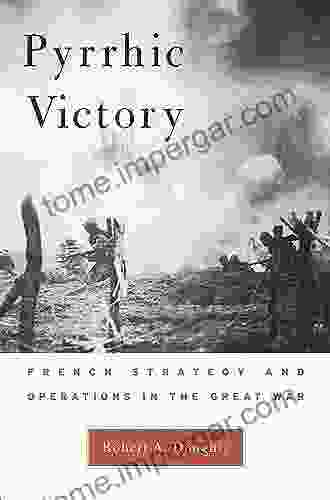
 Edison Mitchell
Edison MitchellFrench Strategy and Operations in the Great War
An In-Depth Examination of Military Genius ...

 Harvey Hughes
Harvey HughesArts In Health: Designing And Researching Interventions
Delving into the...

 Walt Whitman
Walt WhitmanHealing and Hope for Those with Empty Arms
A Comprehensive Guide for Grieving...

 DeShawn Powell
DeShawn PowellUniversity of Maine Ice Hockey: A Legacy of Frozen Glory
Nestled in the heart of Maine, a state...

 George Hayes
George HayesControl For Aluminum Production And Other Processing...
In today's competitive manufacturing...
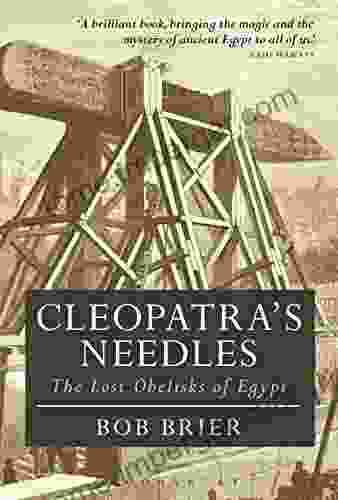
 Ben Hayes
Ben HayesThe Lost Obelisks Of Egypt: A Journey into the Depths of...
: The Enduring Allure of Egypt's Ancient...
4.6 out of 5
| Language | : | English |
| File size | : | 1871 KB |
| Text-to-Speech | : | Enabled |
| Screen Reader | : | Supported |
| Enhanced typesetting | : | Enabled |
| Word Wise | : | Enabled |
| Print length | : | 172 pages |


